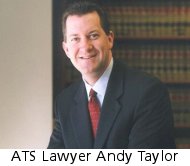Article from: www.thenewspaper.com/news/47/4797.asp
9/25/2015
Texas: ATS Returns To Court To Block Anti-Camera Vote
Traffic camera company tells Texas Court of Appeals that Cleveland residents must not be allowed to vote on red light cameras.
 American Traffic Solutions (ATS) was back in court Thursday to persuade a Texas Court of Appeals panel that the public should not be allowed to decide whether their community uses red light cameras. The company successfully used the courts to block a referendum effort from reaching the ballot in Cleveland, even though camera opponents had a properly certified charter amendment proposal that the city council voted to put on the May 10, 2014 ballot.
American Traffic Solutions (ATS) was back in court Thursday to persuade a Texas Court of Appeals panel that the public should not be allowed to decide whether their community uses red light cameras. The company successfully used the courts to block a referendum effort from reaching the ballot in Cleveland, even though camera opponents had a properly certified charter amendment proposal that the city council voted to put on the May 10, 2014 ballot.
ATS lawyer Andy Taylor had convinced Liberty County Judge Carroll Wilborn Jr to pull the measure (view case). Taylor repeated his argument to the appellate judges, insisting that state law prohibits any effort to ban cameras because state lawmakers gave only the city council the power to implement a camera program.
"The election petition, and the ballot ordinance, seek to include within the charter a provision forever banning the city of Cleveland from using red light cameras as a traffic enforcement mechanism," Taylor argued. "The legislature has determined that cities 'may' use red-light cameras while the Cleveland charter would be amended to say Cleveland 'shall not' do so.... The legislature vested the sole and exclusive authority to enact or to repeal local legislation relating to the use of photographic traffic signal enforcement systems in the 'governing body' of the local authority -- i.e., the Cleveland City Council."
Lawyers for the city of Cleveland argued that Judge Wilborn had absolutely no authority to block an election validly called by the city council.
"Even if the city had not received a valid petition demanding an election on the red light camera amendment, or if the city had received a defective petition, the Cleveland City Council would have, nonetheless, had the authority to call an election on the proposed amendment," Cleveland attorney John J. Hightower wrote. "The district court erred in enjoining the city from conducting an election on the red light camera amendment because the Cleveland City Council had express authority under state law to call an election on the subject."
Hightower added that had the state legislature actually intended to prevent the public from voting on cameras, it would have said so expressly. Taylor's argument has also won the day in Port Lavaca and Sugar Land, where the public was denied a chance to vote on the issue of red light cameras. His winning streak may be coming to an end, as Taylor lost a major battle before a Second District panel of the Court of Appeals last week, which endorsed Arlington's anti-camera referendum vote (view decision).
ATS does not want elections to take place because Texas residents have voted to oust red light cameras in Conroe, Dayton, Houston, Baytown, League City, Arlington and College Station by margins of as much as 77 percent against. Nationwide, voters overwhelming oppose the use of cameras at the ballot box (view list).
 American Traffic Solutions (ATS) was back in court Thursday to persuade a Texas Court of Appeals panel that the public should not be allowed to decide whether their community uses red light cameras. The company successfully used the courts to block a referendum effort from reaching the ballot in Cleveland, even though camera opponents had a properly certified charter amendment proposal that the city council voted to put on the May 10, 2014 ballot.
American Traffic Solutions (ATS) was back in court Thursday to persuade a Texas Court of Appeals panel that the public should not be allowed to decide whether their community uses red light cameras. The company successfully used the courts to block a referendum effort from reaching the ballot in Cleveland, even though camera opponents had a properly certified charter amendment proposal that the city council voted to put on the May 10, 2014 ballot.